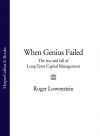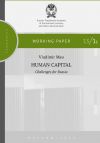Правообладателям!
Представленный фрагмент книги размещен по согласованию с распространителем легального контента ООО "ЛитРес" (не более 20% исходного текста). Если вы считаете, что размещение материала нарушает ваши или чьи-либо права, то сообщите нам об этом.Читателям!
Оплатили, но не знаете что делать дальше?
Текст бизнес-книги "Grand Pursuit: A Story of Economic Genius"
Автор книги: Sylvia Nasar
Раздел: Жанр неизвестен
Текущая страница: 4 (всего у книги 5 страниц)
While the Manifesto referred to “ever-decreasing wages” and “ever-increasing burden of toil” as matters of historical fact, in Das Kapital, Marx argued that the “law of capitalist accumulation” requires wages to fall, the length and intensity of the working day to rise, working conditions to deteriorate, the quality of goods consumed by workers to decline, and the average life span of workers to fall. He did not, however, fall back on the second of his arguments about ever-worsening depressions.102
In Das Kapital, Marx specifically rejected Malthus’s law of population, which, as it happens, is also a theory of how the level of wages is determined. In formulating his law, Malthus had assumed that pay was strictly a function of the size of the labor force. More workers meant more competition among them, hence lower wages. Fewer workers meant the opposite. Engels had already identified the primary objection to Malthus in his 1844 “Outlines of a Critique of Political Economy,” namely that poverty could afflict any society, including a Socialist one.
Marx’s edifice rests on the assumption that all value, including surplus value, is created by the hours worked by labor. “There is not a single atom of its value that does not owe its existence to unpaid labor.” In Das Kapital, he cites Mill to support his claim:
Tools and materials, like other things, have originally cost nothing but labour . . . The labour employed in making the tools and materials being added to the labour afterwards employed in working up the materials by aid of the tools, the sum total gives the whole of the labour employed in the production of the completed commodity . . . To replace capital, is to replace nothing but the wages of the labour employed.103
Mark Blaug, a historian of economic thought, points out that if only labor hours create value, then installing more efficient machinery, reorganizing the sales force, hiring a more effective CEO, or adopting a better marketing strategy—rather than hiring more production workers—necessarily causes profits to fall. In Marx’s scheme, therefore, the only way to keep profits from shrinking is to exploit labor by forcing workers to work more hours without compensating them. As Henry Mayhew detailed in his Morning Chronicle series, there are many ways of cutting the real wage. It is crucial for Marx’s argument, writes Blaug, that trade unions and governments—“organizations of the exploiting class”—can’t reverse the process.104
A surprising number of scholars deny that Marx ever claimed that wages would decline over time or that they were tethered to some biological minimum. But they are overlooking what Marx said in so many words on numerous occasions. The inability of workers to earn more when they produce more—or more-valuable products—is precisely what made capitalism unfit to survive.
By asserting that labor was the source of all value, Marx claimed that the owner’s income—profit, interest, or managerial salary—was unearned. He did not argue that workers did not need capital—factories, machines, tools, proprietary technology, and the like—to produce the product. Rather he argued that the capital the owner made available was nothing more than the product of past labor. But the owner of any resource—whether a horse, a house, or cash—could use it herself. Arguing, as Marx does, that waiting until tomorrow to consume what could be consumed today, risking one’s resources, or managing and organizing a business have no value and therefore deserve no compensation is the same as saying that output can be produced without saving, waiting, or taking risks. This is a secular version of the old Christian argument against interest.
The trouble is, as Blaug points out, that this is just another way of saying that only labor adds value to output—the very statement that Marx set out to prove in the first place—and not an independent proof.
Marx compiled an impressive array of evidence, from Blue Books, newspapers, the Economist, and elsewhere, to show that the living standards of workers were wretched and working conditions horrendous during the second half of the eighteenth and first half of the nineteenth centuries. But he did not succeed in showing either that average wages or living standards were declining in the 1850s and 1860s, when he was writing Das Kapital, or, more to the point, that there was some reason for thinking that they would necessarily decline.
Had Marx stepped outside and taken a good look around like Henry Mayhew, or engaged brilliant contemporaries such as John Stuart Mill who were grappling with the same questions, he might have seen that the world wasn’t working the way he and Engels had predicted. The middle class was growing, not disappearing. Financial panics and industrial slumps weren’t getting worse.
When the Great Exhibition of 1862 closed, the “great festival” refused to disband. A businessman bought the Crystal Palace, had it disassembled and carted to Sydenham in South London, and rebuilt it on an even more monstrous scale. Much to Marx’s disgust, the new Crystal Palace opened as a kind of Victorian Disney World. Worse, the economy boomed. As Marx had to admit, “It is as if this period had found Fortunatas’ purse.” There had been a “titanic advance of production” even faster in the second ten years than in the first:
No period of modern society is so favorable for the study of capitalist accumulation as the period of the last 20 years . . . But of all countries England again furnishes the classical example, because it holds the foremost place in the world-market, because capitalist production is here alone completely developed, and lastly, because the introduction of the Free-trade millennium since 1846 has cut off the last retreat of vulgar economy.105
More fatal to Marx’s theory, real wages weren’t falling as capital accumulated in the form of factories, buildings, railroads, and bridges. In contrast to the decades before the 1840s, when increases in real wages were largely limited to skilled workers, and the effect on living standards was offset by more unemployment, longer hours, and bigger families, the gains in the 1850s and 1860s were dramatic, unambiguous, and widely discussed at the time. The Victorian statistician Robert Giffen referred to the “undoubted” nature of the “increase of material prosperity” from the mid-1840s through the mid-1870s.106 Robert Dudley Baxter, a solicitor and statistician, depicted the distribution of income in 1867 with an extinct volcano that rose twelve thousand feet above sea level, “with its long low base of laboring population, with its uplands of the middle classes, and with the towering peaks and summits of those with princely incomes.”107 The Peak of Tenerife struck Baxter as a perfect metaphor for describing who got what. Still, his data show that by 1867, labor’s share of national income was rising.
Scholars have since corroborated these contemporary observations. As early as 1963, Eric Hobsbawm, the Marxist economic historian, admitted that “the debate is entirely about what happened in the period which ended by common consent sometime between 1842 and 1845.”108 More recently, Charles Feinstein, an economic historian on the “pessimist” side of a long-running debate on the effects of the industrial revolution, concluded that real wages “at last started an ascent to a new height” in the 1840s.109
Marx never did step outside. He never bothered to learn English well.110 His world was restricted to a small circle of like-minded émigrés. His contacts with English working-class leaders were superficial. He never exposed his ideas to people who could challenge him on equal terms. His interaction with economists—“commercial travelers for the great firm of Free-trade”111 as he called them—whose ideas he wished to demolish, was nonexistent. He never met or conducted a scientific correspondence with the geniuses—John Stuart Mill, the philosopher; Charles Darwin, the biologist; Herbert Spencer, the sociologist; George Eliot, the writer; among them—who lived (and debated) a mile or two from him. Astonishingly for the best friend of a factory owner and the author of some of the most impassioned descriptions of mechanization’s horrors, Marx never visited a single English factory—or any factory at all until he went on a guided tour of a porcelain manufactory near Carlsbad, where he took the waters toward the end of his life.112
At Engels’s insistence, in 1859 Marx reluctantly published a preview of his unfinished magnum opus. The thin volume, called A Contribution to the Critique of Political Economy, was greeted with surprise, embarrassment, and virtually no reviews except ones that Engels wrote anonymously at Marx’s behest.113
Marx had frequently justified his decision to remain in England—and even to seek British citizenship—by pointing to the advantages of London, capital of the modern world, for studying the evolution of society and glimpsing its future. But Isaiah Berlin, himself an émigré, wrote that “he might just as well have spent his exile in Madagascar, provided that a regular supply of books, journals and government reports could have been secured.” By 1851, when he started to work seriously on the critique that he boasted would demolish English economics, Marx’s ideas and attitudes were “set and hardly changed at all” over the next fifteen or more years.114
When Marx took up the idea of “providing a complete account and explanation of the rise and imminent fall of the capitalist system,”115 his eyesight was so bad that he was forced to hold books and newspapers a few inches from his face. One wonders what effect his myopia had on his ideas. Democritus, the subject of his doctoral dissertation, was said to have blinded himself deliberately. In some versions of his legend, the Greek philosopher is motivated by a desire to avoid being tempted by beautiful women. In others, he wants to shut out the messy, confusing, shifting world of facts so that he can contemplate the images and ideas in his own head without these bothersome distractions.
One might think that his family’s climb from renters of rooms over a store to rate-paying owners of a London town house would have made Marx uneasy about his theory. In the twenty years since he had set out to prove that capitalism could not work, Marx himself had evolved from bohemian to bourgeois. He no longer favored the immediate abolition of the rights of inheritance in the Communist program.116 The Marxes used one of several legacies to trade their “old hole in Soho” for an “attractive house” in one of the new middle-class developments near Hampstead Heath. It was so new that they found there was no paved road, no gas street lights, and no omnibuses; only heaps of rubbish, piles of rock, and mud.
Marx often said that there was something rotten about a system that increased wealth without reducing misery, yet it did not seem to strike him that misery can sometimes increase with wealth. He assumed that London’s slums, which were becoming more Dickensian with each passing decade, were proof that the economy couldn’t deliver a decent standard of living for ordinary people. On the contrary, explains Gareth Stedman Jones, the housing crisis was an unwelcome by-product of London’s helter-skelter growth, growing prosperity, and voracious demand for unskilled labor. The key fact is that the mid-Victorian building frenzy involved an orgy of demolition. Between 1830 and 1870, thousands of acres in central London were cleared, mostly in the poor districts where land was cheap, to expand the London docks, lay railway lines, build New Oxford Street, dig the sewers and water pipes, and, in the 1860s, excavate the first stretches of the London tube. So, just as tens of thousands of migrants were flocking to the city in search of work, the supply of housing within walking distance of London’s industrial areas was plummeting. As a result, workers were crowded into ever more dilapidated, ever tighter, ever more expensive quarters. Once the demolition stopped and white-collar workers began to commute from the suburbs by rail, the housing crisis began to ease.
The Exhibition season of 1862 coincided with another low point in Marx’s financial affairs. Horace Greeley, the publisher of the New York Tribune, had dropped his column, which, though entirely ghostwritten by Engels, had supplied Marx with extra cash. At one point, his money woes became so dire that he applied for a job as a railway clerk, only to be rejected for “bad handwriting” and not speaking English, and briefly considered immigrating to America. Luckily, he was like an oyster that needed a bit of grit to make his pearls. With his mind on money, he was soon writing a long essay on economics and filling up notebooks again, complaining all the while that he felt like “a machine condemned to devour books and then throw them, in a changed form, on the dunghill of history.”117 He also decided on a title for his great work: Das Kapital.118
The hoopla surrounding the Exhibition continued to depress Marx. He would have sympathized with Fyodor Dostoyevsky’s reaction; the Russian novelist called the glass palace “a Biblical sight, something to do with Babylon, some prophecy out of the Apocalypse being fulfilled before your very eyes.”119 Yet within a year or two, Marx’s fortunes turned up again. Thanks to several unexpected legacies as well as a £375 annual subsidy from Engels, he was able to move his family to an even bigger and more imposing town house and was soon spending £500 to £600 a year, something that more than 98 percent of English families could not afford to do.120
Marx had almost forgotten about the Day of Judgment when it dawned.
The launch of the eleven-thousand-ton warship the HMS Northumberland on April 17, 1866, ought to have been a day of pride, a reminder of Great Britain’s industrial and commercial domination of the world. Instead it was a fiasco. The Northumberland had been on the slips in the Millwall Iron Works yard for nearly five years. On the day of the launch, her unusually heavy weight caused her to slip off the railing—a portent, people understood later, of the precarious condition of the shipping firms and shipbuilders.
Less than a month later, on Thursday afternoon, May 10, in the first week of the London boating season, a frightful rumor swirled through the city. The Rolls-Royce of merchant banks, Overend, Gurney & Company, considered by the average citizen to be as solid as the Royal Mint, had failed. “It is impossible to describe the terror and anxiety which took possession of men’s minds for the remainder of that and the whole of the succeeding day,” wrote the London Times’s financial correspondent. “No man felt safe.” By ten o’clock the following morning, a horde of “struggling and half frantic creditors” of both sexes and seemingly all stations of life invaded the financial district. “At noon the tumult became a rout. The doors of the most respectable Banking Houses were besieged . . . and throngs heaving and tumbling about Lombard Street made that narrow thoroughfare impassable.”121
The New York Times bureau chief dashed off a telegram to his editors to convey that this was “a more fearful panic than has been known in the British metropolis within the memory of man.” Before an extra battalion of constables could be called out to control the crowd and before the Chancellor of the Exchequer could authorize the suspension of the Bank Charter Act, the Bank of England had lost 93 percent of its cash reserves, the British money market was frozen solid, and scores of banks and businesses that lived on credit were facing ruin. “Englishmen have been running mad on speculation . . . The day of reckoning has arrived and blank panic and blue dismay sit on the faces of all our bankers, capitalists and merchants.”122
Among the first victims of the panic were the owners of the Millwall shipyard. The boom in shipbuilding, fueled by a worldwide arms race and trade, had more than doubled employment in London shipyards between 1861 and 1865.123 “The magnates of this trade had not only over-produced beyond all measure during the overtrading time, but they had, besides, engaged in enormous contracts on the speculation that credit would be forthcoming,” Marx gloated.124
By the time of the Overend collapse, new orders were drying up. In fact, Overend may have been pushed over the edge because “they covered the seas with their ships” and “were incurring huge losses on their fleet of steamships.” Other casualties included the legendary railway contractors Peto and Betts. True, the most immediate victims of the panic were gullible investors and “countless swindling companies” that had sprung up to take advantage of cheap money. But the crisis of confidence forced the Bank of England to raise its benchmark interest rate from 6 percent to a crushing 10 percent, “the classic panic rate,”125 which persisted through the summer. A play called One Hundred Thousand Pounds closed after a brief run. The Times didn’t even bother to review it. The boom was over.
When news of Black Friday reached Marx via his afternoon paper, he was in his study in North London pondering a financial crisis closer to home. One Modena Villas, where he and his family had recently moved, was a pretentious affair of the kind sprouting up all over London’s periphery, far too pricey for an unemployed journalist who had long since stopped accepting assignments in order to finish his book. Marx had rationalized the extravagance as necessary for his teenage daughters “to establish themselves socially.” Now, alas, he was broke again and his rent was overdue. So, unfortunately, was Das Kapital.
For nearly fifteen years, Marx had been assuring his best friend and patron that his grandiose “Critique of Political Economy” was “virtually finished, that he was ready to “reveal the law of motion of modern society,” that he would drive a stake through the heart of English “political economy.” Now Engels, who had kept his nose to the grindstone in Manchester for fifteen years to support him, was becoming restive.
In truth, the glitter of England’s prosperity had cast a pall on Marx’s project. He had written very little since 1863. A series of windfalls had purchased temporary spells of independence, but now he was back on Engels’s dole, and, for the first time, the angelic Engels was showing signs of impatience. Marx had been putting him off with graphic descriptions of a series of afflictions worthy of Job: rheumatism, liver trouble, influenza, toothache, impudent creditors, an outbreak of boils of truly biblical proportions—the list went on and on. In April 1866, Marx confessed, “Being unwell I am unable to write.” On the day after Christmas, he complained of “not writing at all for so long.” Around Easter, writing from the seaside in Margate, he admitted to having “lived for my health’s sake alone” for “more than a month.”126
Engels suspected, accurately as it turns out, that the real source of Marx’s troubles was “dragging that damned book around” for too long: “I hope you are happily over your rheumatism and faceache and are once more sitting diligently over the book,” he wrote on May 1. “How is it coming on and when will the first volume be ready?”127 Since Das Kapital was not coming on, Marx retreated into a sulky silence.
Like a shot of adrenaline, Black Friday had a galvanizing effect that no amount of nagging by Engels had ever achieved. Within days, the prophet was back at his desk writing furiously. In early July, he was able to report to Engels, “I have had my nose properly to the grindstone again over the past two weeks,” and to predict that he would be able to deliver the tardy manuscript “by the end of August.”128
Who can blame the author of an apocalyptic text holding back until the time was right? By the time Marx was composing it, his melodramatic prophecy, “The death knell of capitalist private property sounds. The expropriators will be expropriated,” sounded almost plausible. Yet when he composed his famous penultimate chapter on “The General Law of Capitalist Accumulation,” he felt forced to fudge in order to make his case that the poor had gotten poorer. Quoting Gladstone on the “astonishing” and “incredible” surge in taxable income between 1853 and 1863, Marx has the liberal prime minister referring to “this intoxicating augmentation of wealth and power . . . entirely confined to classes of property.”129 The text of the speech, printed in the Times of London, shows that Gladstone actually said the opposite:
“I should look with some degree of pain, and with much apprehension, upon this extraordinary and almost intoxicating growth, if it were my belief that it is confined to the class of persons who may be described as in easy circumstances,” he said, adding that, thanks to the rapid growth of untaxed income, “the average condition of the British laborer, we have the happiness to know, has improved during the last 20 years in a degree which we know to be extraordinary, and which we may almost pronounce to be unexampled in the history of any country and of any age.”130
Marx’s prediction that his manuscript would be finished by the end of the summer proved wildly optimistic, but fifteen months after Black Friday, in August 1867, he was able to report to Engels that he had put the final set of galleys in the mail to the German publisher. In his note, he alluded in passing to a famous short story by the French novelist Honoré de Balzac. An artist believes a painting to be a masterpiece because he has been perfecting it for years. After unveiling the painting he looks at it for a moment before staggering back. “‘Nothing! Nothing! After ten years of work.’ He sat down and wept.”131 Alas, as Marx feared, “The Unknown Masterpiece” was an apt metaphor for his economic theory. His “mathematical proof” was greeted by an eerie silence. And in the worst economic crisis of the modern age, the great twentieth-century economist John Maynard Keynes would dismiss Das Kapital as “an obsolete economic textbook which I know to be not only scientifically erroneous but without interest or application to the modern world.”132
Правообладателям!
Представленный фрагмент книги размещен по согласованию с распространителем легального контента ООО "ЛитРес" (не более 20% исходного текста). Если вы считаете, что размещение материала нарушает ваши или чьи-либо права, то сообщите нам об этом.Читателям!
Оплатили, но не знаете что делать дальше?







